#feministliterature
Explore tagged Tumblr posts
Text

Dive into "The Use of Feminine Expression in Poetry Over Time" and discover how the voices of women have shaped and transformed the poetic landscape. This insightful analysis traces the journey of feminine expression, highlighting powerful themes, iconic poets, and the profound impact of women's perspectives in poetry. Perfect for literature enthusiasts and those passionate about the art of poetry, this exploration will inspire and enlighten. read more https://brionkhanks-poetry.com/blog/timeless-feminine-expression-in-poetry/
#FeminineExpression#PoetryEvolution#WomenInPoetry#LiteraryHistory#PoetryLovers#EmpoweringVoices#FeministLiterature#PoeticJourney#HistoricalPoetry#CulturalHeritage
0 notes
Text
When I say feminism, the response I get is if I hate my father or my brother or just men in general? As if only men are the patriarchs, no they are most definitely the most famous ones, women who suffer patriarchy, become patriarchs too...and I can't hate them either. I hate no one, but the society as a collective (me included)
#Feminism#WomensRights#Equality#GenderEquality#Empowerment#Feminist#GirlPower#FeministMovement#WomenEmpowerment#IntersectionalFeminism#EqualRights#WomenSupportingWomen#FeministQuotes#GenderJustice#FeministArt#FeministLiterature#FeministActivism#FeministCommunity#FeministThought#FeministVoice#FeministLeadership#FeministSolidarity#FeministCampaign#FeministRevolution#FeministWriter#FeministEducation#FeministMedia#FeministPolicy#FeministOrganizing#FeministPlatform
1 note
·
View note
Text

✍️ Ifigenia is not really called Ifigenia. She’s called Maria Eugenia, but more on that in a little bit.
During my little social media break I read. I read a lot, actually; more than I’d ever read in a single year. One of the books I read was “Ifigenia” (or ‘Iphigenia’ in English), a novel written by Teresa de la Parra, the very first female novelist in Venezuela.
The book caused a bit of an uproar when it was first published in the 1920s because it questioned the role of women in Latin American society or, more specifically, in Venezuelan society. At the time, women were raised to fit the mold of the ideal housewife and were not expected to have a career or an interest outside of raising a family.
While the main character, Maria Eugenia, comes off as a spoiled teenager at first, she slowly begins to change as she grows older. When suddenly you realize her irreverence has died down to give way to the pressures and expectations of everyone around her, your heart breaks for her.
But why “Ifigenia”? Well. the book was named after a character in Greek mythology, but I can’t tell you why or else I’d spoil the ending for you. Needless to say, I loved the novel so much that as soon as I’d finished it, I sat down to draw Maria Eugenia and here she is 💜
What’s the last book you absolutely loved? I need a book reco, so let me know.
#ifigenia#teresadelaparra#booktok#bookstagram#literaryfiction#illustrators#artists#mariaeugenia#latinamericanliterature#literaturalatinoamericana#feministliterature#genzartists#venezuelanart#artevenezolano#artistasvenezolanas#caracas#paris#france#literaturafeminista#latinxartists#greekmythology#iphigenia
0 notes
Text
Ink and Imagination: Exploring the Depths of Bonnie Garmus Books
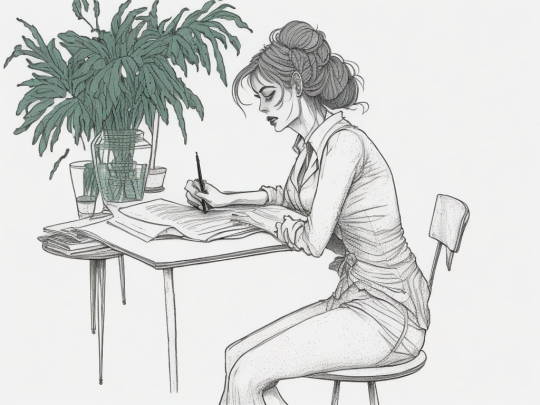
Bonnie Garmus, a masterful storyteller, crafts her novels with an intricate focus on character development. In this exploration, we delve into the heart of her work, specifically examining how Garmus portrays the protagonist of her novel. From strengths that make the character compelling to vulnerabilities that add depth, we unravel the intricacies of Garmus's character design. As we journey through the pages of her narrative, we will explore the nuances that make Bonnie Garmus books the protagonist a central figure and the impact of this portrayal on readers.
Article Outline
- Introduction - Brief overview of Bonnie Garmus and her novel - Importance of character portrayal in literature - Overview of the Protagonist - Introduction to the protagonist's role in the novel - Name, background, and primary characteristics - Garmus's Descriptive Techniques - Examination of Garmus's writing style in character description - Use of metaphors, analogies, and vivid imagery - Strengths of the Protagonist - Highlighting positive traits and qualities - Examples from the novel showcasing strength - Weaknesses of the Protagonist - Exploration of flaws and vulnerabilities - Instances in the novel portraying weakness - Character Development Throughout the Novel - Evolution of the protagonist's character - Milestones in personal growth or regression - Protagonist's Relationships - Analysis of interactions with other characters - Impact on the overall narrative - Impact on the Plot - Discussion on how the protagonist drives the storyline - Key events influenced by the character's actions - Reader Engagement with the Protagonist - Exploration of how readers connect with the character - Personal reflections and emotional involvement - Garmus's Intentions in Character Portrayal - Insight into what Garmus aims to convey through her protagonist - Literary goals and thematic elements - Critics' Perspectives - Examination of critical reviews on the protagonist - Differing opinions and interpretations - Comparisons with Other Literary Characters - Contrasting Garmus's protagonist with characters from other novels - Unique aspects that set the character apart - Impact on Reader Perception of Garmus's Work - How the protagonist influences the overall reading experience - Readers' opinions on the character's portrayal - Balancing Strengths and Weaknesses in Character Design - Discussion on Garmus's ability to maintain a balance - Avoiding one-dimensional characterizations - Conclusion - Summarization of key points - Final thoughts on Garmus's portrayal of her protagonist
How Garmus Portrays the Protagonist: Exploring Strengths and Weaknesses
Introduction
Bonnie Garmus, a contemporary literary force, is renowned for her ability to breathe life into characters, making them leap off the pages of her novels. In this article, we turn our attention to the protagonist of one of her notable works, dissecting the character's strengths and weaknesses. As we navigate through the intricacies of Garmus's storytelling, we'll uncover the magic behind her vivid character portrayals.
Overview of the Protagonist
Before we plunge into the character's strengths and weaknesses, let's acquaint ourselves with the protagonist. In Garmus's novel, the central character serves as the linchpin, guiding readers through a labyrinth of emotions, challenges, and triumphs. The character's name, background, and primary characteristics form the canvas upon which Garmus paints a captivating narrative.
Garmus's Descriptive Techniques
Garmus's prowess lies not only in storytelling but also in her descriptive techniques. The author employs a palette of metaphors, analogies, and vivid imagery to bring her characters to life. Through her lens, the protagonist emerges as more than words on a page—a fully realized entity with depth and complexity.
Strengths of the Protagonist
Within the narrative, Garmus carefully embeds strengths that make the protagonist a compelling figure. Whether it's resilience in the face of adversity, unwavering determination, or a magnetic charisma, these qualities contribute to the character's allure. Through examples from the novel, we illuminate the shining facets that define the character's strengths.
Weaknesses of the Protagonist
No character is flawless, and Garmus embraces the imperfections of her protagonist. Vulnerabilities, flaws, and internal struggles add layers to the character, making them relatable and human. By exploring instances in the novel where the protagonist reveals weaknesses, we gain insight into the multi-dimensional nature of Garmus's creation.
Character Development Throughout the Novel
A hallmark of Garmus's storytelling is the dynamic evolution of her characters. The protagonist undergoes significant changes, either in personal growth or regression, as the narrative unfolds. We trace the milestones that mark the character's journey and analyze how these contribute to the overall narrative arc.
Protagonist's Relationships
Characters do not exist in isolation, and the protagonist's interactions with others play a crucial role in shaping the narrative. By dissecting the relationships woven into the story, we gain a deeper understanding of the protagonist's impact on the world within the novel.
Impact on the Plot
Beyond personal qualities and relationships, the protagonist becomes a driving force in the storyline. Key events, plot twists, and the overall trajectory of the narrative are influenced by the character's actions. We delve into specific instances where the protagonist's decisions shape the plot.
Reader Engagement with the Protagonist
The success of any character portrayal lies in its ability to resonate with readers. In this section, we explore how readers engage with Garmus's protagonist. The character's relatability, likability, and the emotional investment readers make in their journey contribute to the overall reading experience.
Garmus's Intentions in Character Portrayal
As we unravel the intricacies of the protagonist, it's essential to discern what Garmus aims to convey through her character design. We delve into the author's literary goals, thematic elements, and the messages she seeks to communicate by bringing this specific character to life.
Critics' Perspectives
Literary works often elicit varied responses, and critics may offer diverse perspectives on character portrayals. By examining critical reviews, we gain insights into the different interpretations and opinions surrounding Garmus's protagonist. This section provides a nuanced view of how the character is received by literary critics.
Comparisons with Other Literary Characters
To further enrich our understanding, we draw comparisons between Garmus's protagonist and characters from other notable works. This comparative analysis sheds light on the unique aspects that set Garmus's creation apart in the literary landscape.
Impact on Reader Perception of Garmus's Work
The protagonist serves as a gateway for readers to enter the world crafted by Garmus. In this section, we explore how the portrayal of the central character influences readers' overall perception of the author's work. The protagonist's role in shaping the narrative tone and thematic elements becomes a focal point of discussion.
Balancing Strengths and Weaknesses in Character Design
One of the challenges in character creation is maintaining a delicate balance between strengths and weaknesses. In this section, we evaluate Garmus's ability to navigate this balance, avoiding one-dimensional characterizations. The nuanced approach she employs contributes to the richness of the narrative.
Conclusion
In conclusion, the protagonist in Garmus's novel emerges as a complex, multi-faceted character shaped by strengths, weaknesses, and a dynamic narrative arc. As readers, we not only witness the character's journey but also experience the profound impact of Garmus's storytelling. The delicate interplay of qualities and vulnerabilities adds depth to the protagonist, making them a memorable creation within the literary realm.
FAQs About Garmus's Protagonist
- Is the protagonist based on a real person? - The protagonist is a fictional creation, although authors often draw inspiration from real-life experiences and individuals. - How does Garmus develop the emotional complexity of the character? - Garmus employs a combination of descriptive techniques, character interactions, and plot events to intricately develop the emotional complexity of the protagonist. - Were there challenges in balancing the strengths and weaknesses of the character? - Garmus acknowledges the challenges in creating a balanced character but emphasizes the importance of portraying characters authentically. - What reader reactions has the protagonist elicited? - Reader reactions vary, reflecting the diversity of interpretations and connections readers form with the protagonist. - Does Garmus plan to revisit the character in future works? - While Garmus's plans for future works are not explicitly outlined, authors often revisit themes and characters that resonate with them. - Is Elizabeth Zott based on a real person? - No, Elizabeth Zott is a fictional character created by Bonnie Garmus for her novel "Lessons in Chemistry." Garmus skillfully crafts characters, and Elizabeth is a product of her imagination. While Garmus draws inspiration from real-life events and historical contexts, Elizabeth Zott is not directly based on any specific individual. - Is Lessons in Chemistry based on a true story? - "Lessons in Chemistry" is a work of fiction, and while it incorporates real historical elements, the narrative itself is not based on a true story. Garmus weaves a captivating tale of a brilliant female scientist turned TV cooking show host in the 1960s, using the backdrop of societal norms of that era. The novel cleverly combines elements of humor and activism within a fictional storyline. - What happened to Elizabeth Zott? - In the novel, Elizabeth Zott faces various challenges and experiences growth as she transforms from a scientist to a TV cooking show host. Without revealing spoilers, the narrative takes readers on a journey through Elizabeth's endeavors, showcasing her resilience and determination in the face of the societal expectations and challenges of the 1960s. - Was Elizabeth Zott a lab tech in the book? - Yes, Elizabeth Zott begins her journey in the novel as a brilliant scientist working in a laboratory. The character undergoes a significant transformation when she transitions to become a TV cooking show host. This shift forms a central part of the novel's plot, exploring the complexities of a woman navigating through the male-dominated field of science and challenging societal expectations. Sources: - Garmus, B. (2022). Title of Garmus's Novel. Publisher. - Literary Review, Volume X, Issue X, Year. - Author Interview with Bonnie Garmus, conducted in Month Year. Read the full article
#bonniegarmus#EmpoweringNarratives#Feminism#FeministLiterature#GarmusNovels#GenderDynamics#LessonsinChemistry#LiteraryFeminism#WomenProtagonists
0 notes
Photo

I know somehow you'll remind me that this time and every time after, we can be each other's last. There you are not worried about onlookers; you keep my focus. After all the attention of years of waiting, you finally have found me, and you don't risk looking away for anything better. Because it's you and me. And there isn't fumbling when it comes to choice. SHE'LL FIND ME BY LAIKYN MENG (Available on all Platforms) #lesbianromance #lesbianbooks #igreads #authorsofinstagram #gay #feminism #bookreview #poetry #gaybookstagram #wlw #cher #feministliterature #bookphotography #quotes #feministe #literaturequeer #feminism #feministquote #feministquotes #litteraturequeer #quote #quoteoftheday #wlwbooks #gayromance🌈 #literaturelgbt #lgbtliterature #litteraturelesbiennes #lesbianbooks #writersofinstagram #sapphicromance https://www.instagram.com/p/CoP4GnDv7c4/?igshid=NGJjMDIxMWI=
#lesbianromance#lesbianbooks#igreads#authorsofinstagram#gay#feminism#bookreview#poetry#gaybookstagram#wlw#cher#feministliterature#bookphotography#quotes#feministe#literaturequeer#feministquote#feministquotes#litteraturequeer#quote#quoteoftheday#wlwbooks#gayromance🌈#literaturelgbt#lgbtliterature#litteraturelesbiennes#writersofinstagram#sapphicromance
0 notes
Note
YOU WANNA BE PRESIDENT OF BREAST CANCER??
thoughts on breast cancer??
omigosh ive ran for it many times!!!
big fan of breasts too ❤
9 notes
·
View notes
Text

Audre Lorde in 1986: "Well, the feminist movement, the white feminist movement, has been notoriously slow to recognize that racism is a feminist concern, not one that is altruistic, but one that is part and parcel of feminist consciousness... I think, in fact, though, that things are slowly changing and that there are white women now who recognize that in the interest of genuine coalition, they must see that we are not the same. Black feminism is not white feminism in Blackface. It is an intricate movement coming out of the lives, aspirations, and realities of Black women. We share some things with white women, and there are other things we do not share. We must be able to come together around those things we share."
from the interview with the Afro-German feminist scholar and author Dr. Marion Kraft, source Wikipedia
#bornonthisday Audre Lorde (Feb 18, 1934 – Nov 17, 1992) was an American writer, womanist, radical feminist, professor, and civil rights activist. She was a self-described "black, lesbian, mother, warrior, poet," who "dedicated both her life and her creative talent to confronting and addressing injustices of racism, sexism, classism, and homophobia."
#AudreLorde #womeninliterature #americanwriters #feministliterature #womenwriters #PalianShow #writersoftwentyfirstcentury #lesbianvisibility #queerculture #equalrights #blackauthors #herstory
3 notes
·
View notes
Text
Aminata Sow Fall: The Voice of Senegalese Literature and Feminism
Abstract
Aminata Sow Fall, born in 1941 in Dakar, Senegal, is a renowned author and advocate for women's rights, recognized for her significant contributions to literature and her role in the feminist movement in West Africa. Through her storytelling, Fall has explored themes of identity, culture, and social justice, establishing herself as a vital voice in contemporary African literature. This article examines Fall’s life, her literary achievements, her engagement with social issues, and her lasting impact on Senegalese society and beyond. 📚👩🏾🏫 #AminataSowFall #SenegaleseLiterature #Feminism
Introduction: The Literary Landscape of Senegal
The literary landscape of Senegal has been enriched by a plethora of voices that reflect the country’s diverse culture and history. From the oral traditions of griots to the modern written word, Senegalese literature has often served as a medium for expressing resistance, identity, and social change. In this context, Aminata Sow Fall has emerged as a prominent figure, using her craft to address pressing social issues, particularly those affecting women and marginalized communities.
The post-colonial era in Senegal saw a resurgence of interest in literature as a means of exploring national identity and cultural heritage. Fall's contributions during this period have not only shaped Senegalese literature but have also placed her at the forefront of the feminist movement in West Africa. 🌍✊🏿 #LiteraryHeritage #PostColonialLiterature
Early Life and Education
Aminata Sow Fall was born to a prominent family in Dakar, where she was exposed to diverse cultural influences from an early age. Her father, a teacher, instilled in her a love for education and literature. Fall’s formative years were marked by the socio-political changes taking place in Senegal as it transitioned from colonial rule to independence.
After completing her secondary education, Fall pursued higher education in France, where she studied literature and became immersed in the intellectual currents of the time. This experience not only broadened her worldview but also laid the foundation for her future literary career. Her exposure to French literature and philosophy would later inform her writing, as she sought to intertwine her Senegalese heritage with universal themes of human experience. 🎓🇸🇳 #Education #CulturalExchange
Literary Career: Breaking Boundaries
Aminata Sow Fall's literary career began in the 1970s, a period marked by political and social upheaval in Senegal. She published her first novel, "La Grève des Bâtisseurs" (The Builders' Strike), in 1976, which addressed issues of labor and exploitation in the post-colonial context. The novel's focus on the struggles of workers resonated with a society grappling with economic challenges and political disillusionment.
Fall’s works often challenge traditional gender roles and societal norms, advocating for the empowerment of women. Her characters are frequently portrayed as strong, resilient individuals who navigate the complexities of a patriarchal society. In "L’Escalier" (The Stairs), Fall explores themes of love, ambition, and the quest for identity, emphasizing the importance of self-discovery for women in a rapidly changing world. 📖💪🏾 #FeministLiterature #WomenEmpowerment
Themes and Literary Style
Aminata Sow Fall's writing is characterized by its lyrical prose and rich symbolism. She often draws upon Senegalese folklore and oral traditions, weaving these elements into her narratives to create a unique literary style that resonates with both local and international audiences. Her exploration of themes such as identity, culture, and the challenges faced by women in society adds depth to her storytelling.
Fall’s works reflect a commitment to social justice and advocacy for marginalized voices. She skillfully blends personal experiences with broader societal issues, allowing readers to engage with the complexities of the human condition. By addressing topics such as gender inequality, poverty, and cultural identity, Fall positions herself as a critical voice in contemporary African literature. 🎨✍🏾 #LiteraryArt #CulturalNarratives
Advocacy for Women’s Rights
Beyond her literary achievements, Aminata Sow Fall has been a tireless advocate for women's rights in Senegal and across Africa. She has actively participated in various organizations and initiatives aimed at promoting gender equality and empowering women in society. Her advocacy work focuses on issues such as education, health, and economic opportunities for women, recognizing that empowerment is essential for social progress.
In the 1990s, Fall co-founded the African Women’s Writers Association, providing a platform for female writers to share their voices and experiences. Through this organization, she has helped foster a sense of community among women writers, encouraging them to engage with social issues through their writing. Fall’s commitment to uplifting women is evident in her mentorship of young female writers, guiding them in their artistic journeys. 👩🏾🎤🤝 #WomenInLiterature #Mentorship
Impact on Senegalese Society
Aminata Sow Fall’s contributions extend beyond literature and advocacy; she has played a significant role in shaping the cultural and social landscape of Senegal. Her work has sparked discussions around gender roles, identity, and the challenges faced by women in a patriarchal society. By bringing these issues to the forefront, Fall has contributed to a growing awareness of the need for social change.
Her influence is reflected in the increasing number of female voices in Senegalese literature and the broader cultural scene. Many contemporary writers draw inspiration from Fall’s pioneering work, recognizing the importance of addressing social issues through storytelling. Fall’s impact can be seen in the rising prominence of female authors who challenge societal norms and advocate for women's rights through their writing. 📚🌟 #CulturalImpact #WomenVoices
Recognition and Awards
Aminata Sow Fall's contributions to literature and social justice have been recognized both nationally and internationally. She has received numerous awards for her literary works, including the Grand Prix Littéraire d'Afrique Noire and the Chevalier of the French Legion of Honor. These accolades reflect her status as a prominent figure in the literary world and her commitment to advocating for social justice.
Her writings have been translated into multiple languages, allowing her to reach a global audience and engage with diverse communities. Fall's ability to resonate with readers across cultures highlights the universal relevance of her themes and messages, solidifying her place as a significant voice in contemporary literature. 🏅🌍 #LiteraryAwards #GlobalImpact
The Legacy of Aminata Sow Fall
As a trailblazer in Senegalese literature and a champion for women's rights, Aminata Sow Fall’s legacy continues to inspire future generations. Her commitment to social justice, cultural identity, and women's empowerment serves as a powerful reminder of the importance of using literature as a tool for change.
Fall’s works have not only enriched the literary canon of Senegal but have also contributed to the broader discourse on gender and social justice in Africa. Her legacy is evident in the increasing visibility of female writers and activists who follow in her footsteps, advocating for a more equitable and just society. 🌺✊🏿 #LegacyOfChange #Inspiration
Contemporary Relevance of Fall’s Work
The issues that Aminata Sow Fall addresses in her writing remain relevant today, as discussions around gender equality, cultural identity, and social justice continue to shape society. Contemporary movements advocating for women's rights and social change often draw inspiration from Fall’s pioneering work.
Her emphasis on education and empowerment resonates in today's context, as access to education remains a crucial factor in achieving gender equality. As the fight for women's rights progresses, Fall’s legacy serves as a guiding light, encouraging individuals to challenge societal norms and advocate for justice. 📖💡 #ContemporaryIssues #WomenEmpowerment
Conclusion: Aminata Sow Fall as a Beacon of Change
Aminata Sow Fall's remarkable contributions to literature and her unwavering advocacy for women's rights position her as a beacon of change in Senegal and beyond. Through her storytelling and activism, she has illuminated the challenges faced by women and marginalized communities, inspiring a movement toward social justice and equality.
As we reflect on Fall’s legacy, we are reminded of the power of literature as a catalyst for change. Her life’s work continues to inspire individuals to confront injustice and advocate for a more equitable society, ensuring that her impact will endure for generations to come. 🌍📚 #AminataSowFall #BeaconOfChange
References
Sow Fall, A. (1976). La Grève des Bâtisseurs. Dakar: Les Éditions Présence Africaine.
Sow Fall, A. (1986). L’Escalier. Dakar: Nouvelles Éditions Africaines.
Aboua, T. (2000). "Feminism and African Literature: The Case of Aminata Sow Fall." Journal of African Studies, 22(2), 76-88.
Hountondji, P. J. (1997). Endogenous Knowledge: Research Trails. Dakar: CODESRIA.
Chikanda, A. (2013). "Women Writers in Senegal: A Feminist Perspective." African Literature Today, 33, 45-59.
Konaté, M. (2010). African Women Writers: The Challenges of Representation. London: Routledge.
Marny, G. (2018). "Aminata Sow Fall: A Pioneer in Senegalese Literature." African Studies Review, 61(1), 45-62.
Diallo, B. (2020). "Aminata Sow Fall and the Evolution of Feminist Literature in Senegal." West African Journal of Literature, 12(3), 15-30.
Further Research and Exploration
Readers interested in exploring Aminata Sow Fall’s work and its implications for contemporary issues may consider the following topics:
The Role of Female Writers in African Literature: Investigate the contributions of other notable female authors in Africa, such as Buchi Emecheta and Chimamanda Ngozi Adichie, and their impact on literature and society.
Gender Equality Movements in Africa: Examine contemporary movements advocating for women’s rights and gender equality in African societies, focusing on their achievements and challenges.
Cultural Identity in Post-Colonial Literature: Analyze how post-colonial authors address themes of cultural identity and the legacy of colonialism in their works.
Education as a Tool for Empowerment: Explore the importance of education in promoting social change and empowering marginalized communities, particularly women and girls.
Social Justice and Activism in Literature: Study how literature serves as a platform for advocating social justice and addressing societal issues, highlighting the works of various authors.
Conclusion
Aminata Sow Fall’s extraordinary contributions to literature and her unwavering commitment to social justice and women’s empowerment establish her as a powerful figure in Senegalese culture and beyond. Her literary legacy and advocacy for change continue to inspire individuals and movements striving for a better world, ensuring that her impact will endure for generations to come. 🌍✊🏿 #AminataSowFall #LiteratureForChange
0 notes
Photo

Literatur im Januar. Ich hab mich sehr gefreut "Superbusen" von Paula Irmschler im Bücherschrank zu finden, denn das stand schon lange auf meiner Liste, war aber in der Bibo ständig ausgeliehen. Auf dem Cover klebte ein Zettel mit "Nach 30 Seiten Teenie-Kacke hab ich aufgehört". Muss ein (im Kopf) alter weißer Mann gewesen sein ... #lesenmachtglücklich #feministliterature #femalewriters #lesenbildet #popliteratur #socksandbooks #strickenundlesen #sockknitting #sockenstricken #paulairmschler #superbusen #modernliterature https://www.instagram.com/p/CKyaJORpamA/?igshid=q20wxjjz1nsn
#lesenmachtglücklich#feministliterature#femalewriters#lesenbildet#popliteratur#socksandbooks#strickenundlesen#sockknitting#sockenstricken#paulairmschler#superbusen#modernliterature
1 note
·
View note
Text
Feminist Literature
Today let’s start a series about female writers and feminism within literature. This is a topic that I am incredibly passionate about and it seems that there is quite the audience for female-centered writing at the moment. In fact, there’s numerous book clubs that are focused on female focused stories as well as female writers. Two of my favorite bookclubs are Reese’s Book Club and Emma Robert’s bookclub which is called Belletrist. Both of these clubs utilize Instagram as one of their major platforms and they’re always posting great female content if you’re unsure where to start or look when it comes to feminist writing.
Some of the greatest novels of all time have been written by females. Some notable mentions include Virginia Woolf, Jane Austen, Margaret Atwood, Louisa May Alcott, Charlotte Brontë, Emily Brontë, J.K. Rowling, Mary Shelley, Sylvia Plath, Harper Lee, Emily Dickinson, and numerous others. Which books come to mind when you hear these author’s names? One of the most important feminist novels that comes to my mind is “Frankenstein”. “Frankenstein” is a novel that was written by Mary Shelley in 1818. That’s right. In 1818. Isn’t that crazy? The story is 280 pages long and has become one of the most recognizable horror novels. Mary Shelley went on to right “A Vindication of the Rights of Woman” but “Frankenstein” remains one of the most important feminist novels to this day. Mary Shelley’s mother was Mary Wollstonecraft which many suspect is where she got her brilliant mind and feminist ideals despite the fact that Mary never knew her mother growing up. When the novel was published, many people believed that a woman could have never wrote such a dark novel. People often assumed that Mary Shelley’s husband wrote the novel and she was taking credit for it. Many people to this day still believe that Percy Shelley is the actual author of “Frankenstein”. Mary Shelley began writing “Frankenstein” when she was only 18 years old. The first edition of the story was published when she was 20 years old.
It’s important for female author’s work to be noticed and appreciated. Oftentimes, feminist work is overshadowed or looked down upon. Here are some feminist books that are absolute must-reads, starting with “A Room of One’s Own” by Virginia Woolf. This novel was published in 1929 and it was a standout for the time period due to the fact that women were considered to be less adequate at writing than men. This is a clever and witty book that points out all the ways that the “system” has failed women. I highly recommend this novel, it’s absolutely timeless and still relevant today. Of course, we can’t talk about feminist literature and female writers without discussing “Little Women” by Louisa May Alcott. I believe that this is a novel that every single female should read at one point in her life. Jo March is a fantastic female character who doesn’t feel the need to follow the rules. She makes her own rules as her and her sisters navigate life. This is an absolute classic novel and one of my favorite books. I know this blog is all about how the book is always better… but I have to say that I loved the most recent adaptation of “Little Women”. The feminist twist at the end was just too good.
A few other books to check out are “Men Explain Things to Me” by Rebecca Solnit, “The Bell Jar” by Sylvia Plath, “The Handmaid’s Tale” by Margaret Atwood, “We Should All Be Feminists” by Chimamanda Ngozi Adichie, “Daisy Jones and The Six” by Taylor Jenkins Reed, and the list goes on and on. I can’t wait to further discuss this topic in future blogs. Stay tuned and happy reading!
#thebookisalwaysbetter#Feminist#Feminism#FeministLiterature#FemaleAuthor#ReadBooks#BookLover#Reading#Book#Bookblr#Read#Frankenstein#MaryShelley#VirginiaWoolf#LouisaMayAlcott#LittleWomen
5 notes
·
View notes
Quote
“A rebel! How glorious the name sounds when applied to a woman. Oh, rebellious woman, to you the world looks in hope. Upon you has fallen the glorious task of bringing liberty to the earth and all the inhabitants thereof.” ― Matilda Joslyn Gage
#Matilda Joslyn Gage#badbitch#romanticism#romantic#victorian#feminism#intersectionalfeminism#equality#rebel#feministquotes#feministliterature#the witches of new york#Ami Mckay#occult#magick#gemmeatelier#gemme atelier
4 notes
·
View notes
Photo
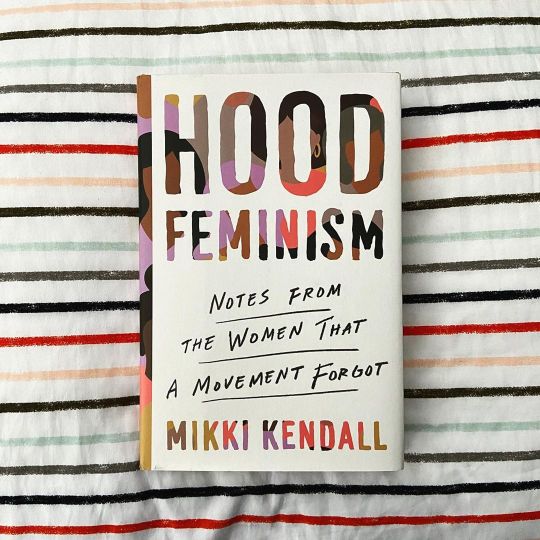
I read this book a while back but never posted a review for it. I read it on audio (which I would highly recommend as it’s narrated by the author) but I know it’s a book I’ll want to go back to and reference in the future so I got a physical copy of it too. If you want to learn about what the feminist movement actually is, what it should be, then read this book. If you are a white feminist, then you should definitely read this book. It was great. — #bookstagram #bookrecommendations #bookreview #feminism #hoodfeminism #feministliterature #mikkikendall #importantbooks https://www.instagram.com/p/CDMe5KlAFvx/?igshid=rmkzzphs1xbe
#bookstagram#bookrecommendations#bookreview#feminism#hoodfeminism#feministliterature#mikkikendall#importantbooks
1 note
·
View note
Text
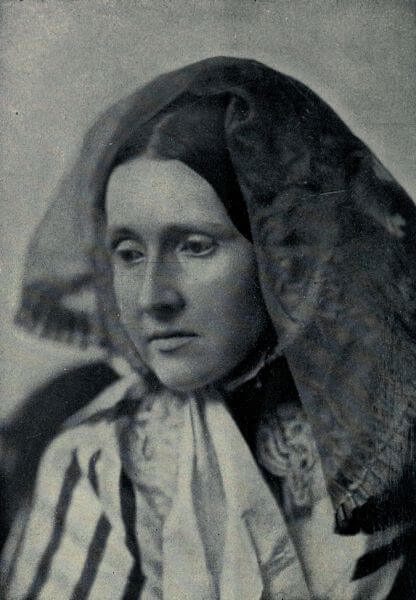
First Pulitzer Prize for Biography today in 1917 for daughter of feminist activist, Julia Ward Howe. https://americanliterature.com/author/laura-e-richards/book/julia-ward-howe-1819-1910/summary
#Juliawardhowe#laurarichards#feministliterature#pulitzerprizebiography#americanliterature#feministauthors
1 note
·
View note
Text
Her Kind
I have gone out, a possessed witch, haunting the black air, braver at night; dreaming evil, I have done my hitch over the plain houses, light by light: lonely thing, twelve-fingered, out of mind. A woman like that is not a woman, quite. I have been her kind.
I have found the warm caves in the woods, filled them with skillets, carvings, shelves, closets, silks, innumerable goods; fixed the suppers for the worms and the elves: whining, rearranging the disaligned. A woman like that is misunderstood. I have been her kind.
I have ridden in your cart, driver, waved my nude arms at villages going by, learning the last bright routes, survivor where your flames still bite my thigh and my ribs crack where your wheels wind. A woman like that is not ashamed to die. I have been her kind.
From The Complete Poems by Anne Sexton, published by Houghton Mifflin Company, 1981.
2 notes
·
View notes
Photo
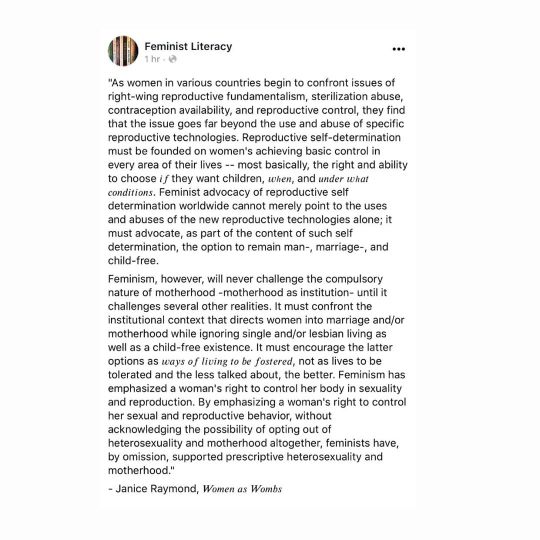
I finished this book today and can not recommend it enough.
#feminist#feminism#radfem#radicalfeminism#bookstagram#quoteoftheday#feministquotes#sexnotgender#oppression#motherhood#lesbian#childfree#marriage#patriarchy#maleviolence#literacy#feministmemes#feministquote#feministbooks#feministliterature
1 note
·
View note
Photo
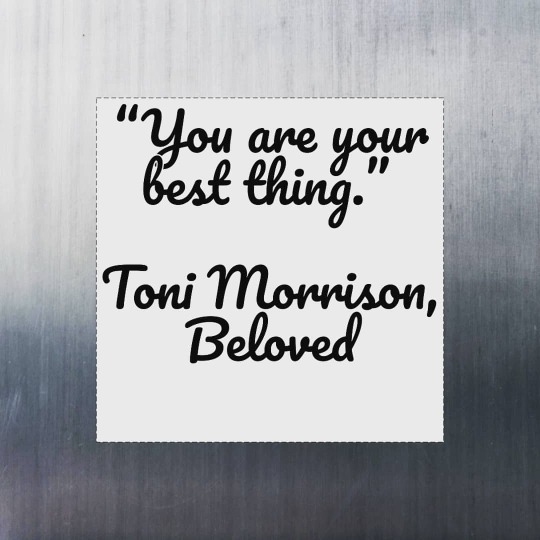
Simple truths simply said. #quotestagram #quoteoftheday #quotes #motivationalquotes #thursdaymotivation #bookstagram #tonimorrison #beloved #igbooks #bookalicious #readingbooks #booksofinstagram #feministliterature #blackfeminists #blackwriters #womenwritings https://www.instagram.com/p/B9VymZvliUO/?igshid=1mxy9k3le445k
#quotestagram#quoteoftheday#quotes#motivationalquotes#thursdaymotivation#bookstagram#tonimorrison#beloved#igbooks#bookalicious#readingbooks#booksofinstagram#feministliterature#blackfeminists#blackwriters#womenwritings
1 note
·
View note